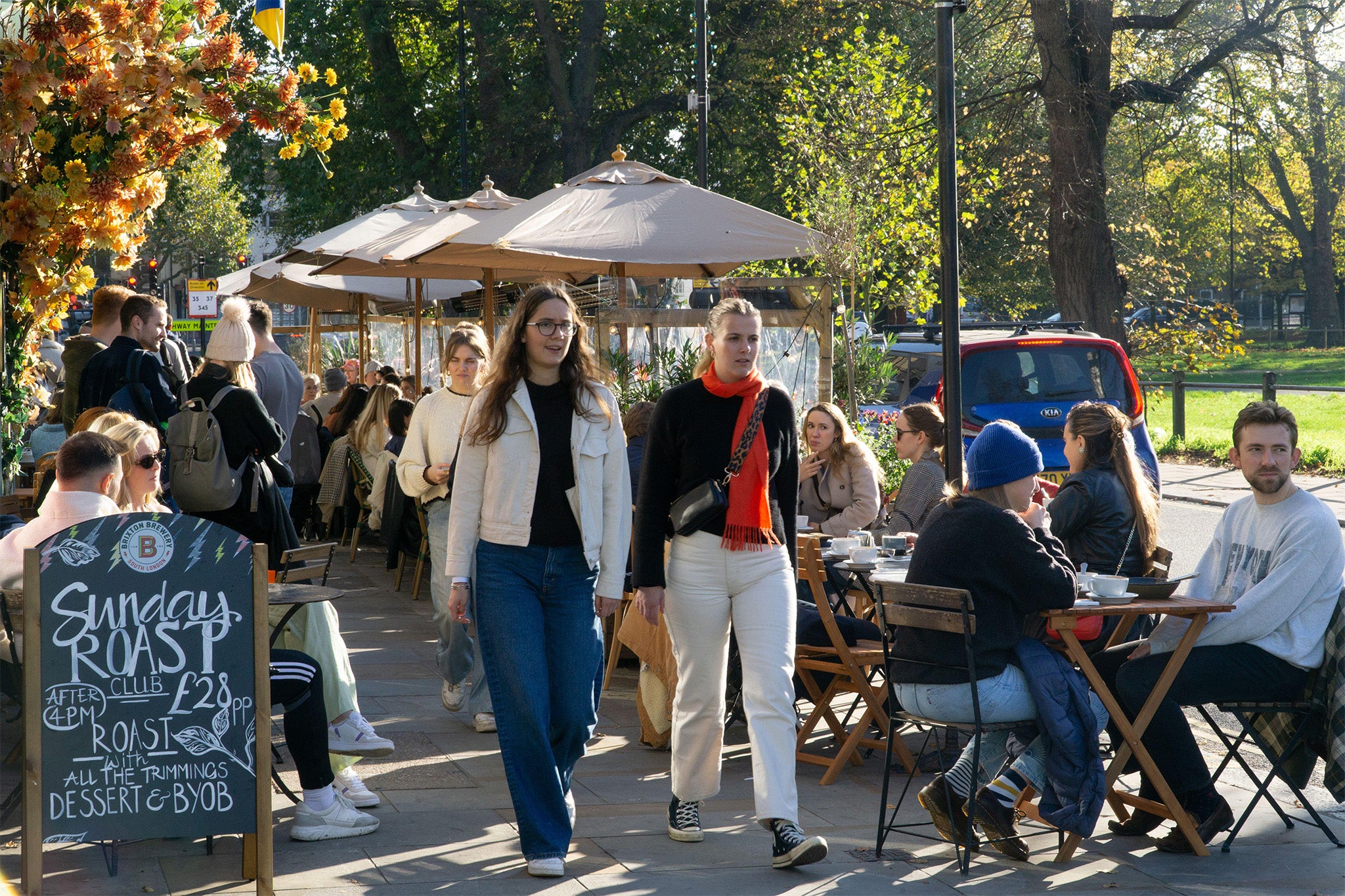This might be the ‘happiest place in London to live’ – but who can afford it?
I grew up in SW4, home to the country’s highest household income – but even that wouldn’t be enough for me to live there now, says Rebecca Reid


I have a game I play when I’m wandering the pretty streets of Clapham, the place I grew up and still my favourite London village. I look for signs that a house is inhabited by a family – scooter outside, faded rainbow picture in the window, neatly swept steps up to the front door.
And then I ask myself: how on earth does anyone of a child-bearing age afford to live here these days?
According to Time Out, SW4 is the happiest place to live in the capital, ranked above Crouch End and Richmond. But, seriously, who can afford to live there?

Last year, Clapham Common became the first neighbourhood in the UK where the average household income tops over a hundred grand – £108,100, to be precise, and some three times the national average.
According to estimates produced by the Office for National Statistics (ONS), one ward in the affluent, leafy south London enclave has a greater average household income than even the richest parts of Kensington and Chelsea.
And it’s thanks to Clapham being a giant rental hotspot, attracting thrusting young professionals, those between the ages of 25 and 34 who are in well-paid jobs and happy to bunk up in a bedroom repurposed from a cupboard or a scullery, in one of the several flats that have been carved out of a grand townhouse.
I loved living in Clapham as a child, because it’s the perfect place to raise a family. Oodles of green space, with lots of galleries and museums within minutes on the Tube. It’s a lovely, reassuring place – one where I absolutely cannot afford to live today.
Growing up there in the Nineties, Clapham was a slightly mediocre, suburban place where people who couldn’t afford to live in Chelsea ended up. Now, it’s aspirational in the extreme. The little terraced houses on the toast rack off Clapham Common, originally built en masse to house the hoards of workers needed to build railways and other infrastructure during the industrial revolution, are now the kind of aspirational dream homes that even two high-earning adults can’t get anywhere close to.
Instead, those Lotties and Maxes from the home counties, who are using their Russell Group degrees to change the world via Deloitte or PwC, will be paying an average monthly rent of £2,500 to live with each other in what were once family homes for Victorian industrialists – some £700 higher than the London average.
While the rest of the country was thinking the same thing about that £100,000 a year – what I couldn’t do with that kind of money… – I was privately thinking: who is managing to live in Clapham on as little as that?
Now I can sense the outrage brewing at the idea a six-figure household income doesn’t necessarily make you wealthy. You hear “hundred-grand household” and you think of private school, Range Rovers, Mauritius for new year. But I’m afraid that’s just not it, thanks to a phenomenon I’ve dubbed Not Rich In Clapham (NRIC).
Bonnie, 31, lives in Clapham Common and is very aware of NRIC syndrome. “I make £45k,” she tells me. “By the time I’ve done rent, bills, travel, student loan and food, I’ve got sweet FA left. I put my shampoo and conditioner on Klarna last month, and I’ve been making fake accounts on ClassPass so I can do free trials over and over again, instead of paying for the gym.”
Will, 32, agrees that Clapham Common isn’t exactly providing the boujee lifestyle he’d dreamed of. “It is really nice here, and I like my houseshare a lot,” he insists. “But I’m getting pretty old to live in a house with four bikes in the hallway. I’d like to live with one other person, but it’s just not manageable, unless I accept that I can never buy a pint in a pub again.”
It’s little surprise that, come Sunday night, the discount section at Clapham Common’s nice big Waitrose is swarming with people in Barbours, gently barging each other out of the way to get the yellow-stickered halloumi.
These days, I live a couple of miles down the road in the less nice end of Balham. Given that I’m a single parent on a single income, I’m lucky to be able to live in London at all. And I’m far from the only person in London who has been priced out of their original neighbourhood. But there is something fairly depressing about being unable to provide one’s child with a childhood as nice as one’s own.
I can’t help but wonder, when I look at the Farrow & Ball front doors that line the pretty Victorian streets, and consider knocking to ask: how on earth do you afford to live in Clapham?
Join our commenting forum
Join thought-provoking conversations, follow other Independent readers and see their replies
Comments
Bookmark popover
Removed from bookmarks